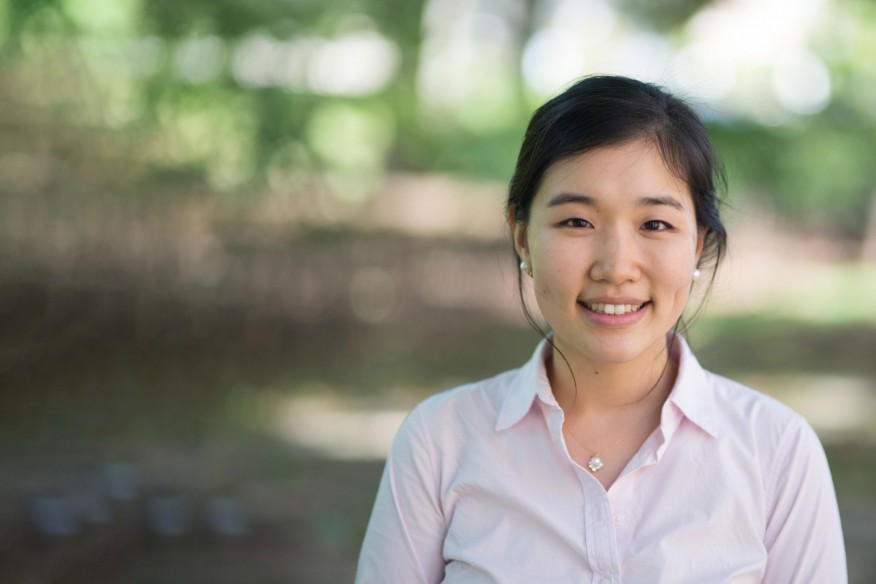-
Scholarship:School of Social Work Scholarship
-
Practice Method:Interpersonal Practice
-
Practice Area:Mental Health
-
Joint PhD (Developmental) Psychology
-
HRSA
Sunghyun Hong attends the U-M School of Social Work with help from a School of Social Work Scholarship, funded by gifts from many donors to support our master’s students.“Social work is about collective movements,” Sunghyun notes. “My scholarship reflects that. People contribute gifts of all sizes, and it creates a huge synergy to support students who then go back to the community and make even more ripples.”
An additional grant through the school encouraged Sunghyun to pursue Social Work, without anxiety from the need to take out loans. "After undergrad, I took multiple jobs that were not financially ideal but that deeply aligned with my passion." She worked part time both at Northwestern University as a research assistant and at Englewood Family Outreach on the South Side of Chicago as a program coordinator. At Englewood, she worked with underserved children, youth and adult women of color exposed to community violence. “When I got my scholarship, it affirmed that pursuing my passion to empower underserved communities is my calling.” Sunghyun explains. “I want to dedicate my research and clinical practices to reflect my long-term commitment to produce work that mostly benefit individuals living in underserved communities. If I had student loans, it would have been difficult for me to move forward. U-M offered me very generous scholarships. That’s how I decided to come here.”
Sunghyun was born in Madison, Wisconsin to Korean parents. She lived for a time in Korea with her family and had difficulty adjusting to the culture. Eventually, she returned to the United States by herself, ultimately finding a home at Michigan, first as an undergrad studying biopsychology and anthropology and then at the School of Social Work. “My mom said I should desire to be educated not for myself but to help others,” Sunghyun says. “She always encouraged my sister and me to look for careers where our passions could meet professionalism. I desire to work with youth and young adults in hard circumstances. I don't want to just focus on their community’s weaknesses but on the strengths and identities that keep them resilient. I want to help restore people’s dignity despite the chronic adversity and systematic oppression they suffer. Social work is about identifying people's worth is beyond their accomplishments and sustaining their dignity.”
Sunghyun would eventually like to merge neuroscience and social justice. Professor Todd Herrenkohl has encouraged her. “Todd motivated me to push the conventional boundary of what social work research is,” she says. “I might be one of the first at our school to do neuroscience jointly with social work; I want to focus on expanding our understanding of resilience: what helps individuals to overcome and thrive despite exposure to trauma. I want to create a system where everyone has a lifelong foundation of mental health and psychological wellbeing. I want to help build a community that cultivates resilience, hope, and compassion.”
Reflecting again on her scholarship, Sunghyun points out that, for fruit to grow, there must be hard rain and a soft rain. “Soft rain nourishes the soil,” she explains, “so the hard rain can help the tree to grow. The scholarship gifts people make are the soft rain, many generous donors helping someone like me to cultivate their passion and identity as a social worker. I want to pay it forward. Eventually I want to do for someone else what these donors have done for me.”
